Man's Search For Meaning; Viktor Frankl's Understanding
Man's search for meaning
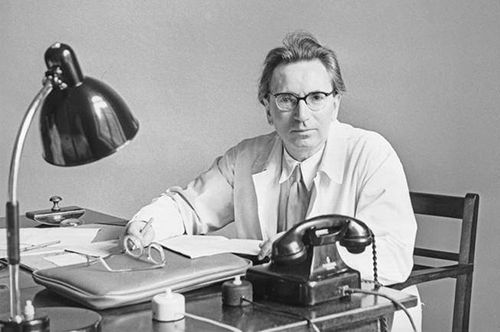
Imagine if you will, it was 1933 and you had stepped off of a train that just arrived at Auschwitz, one of the most notorious death camps established during the start of the Holocaust. You already knew your fate was going to be determined within seconds and either you’re being sent to the left where 90% of people would go to die, or to the right where the lucky 10% had the privilege to transport the corpses of strangers, friends, or family to the incinerator. It may seem like a grim scenario to try to imagine yourself to have to endure, but this is exactly what had happened to Psychiatrist, Viktor Frankl, when had been stripped of his title of doctor and then forcefully transported from his loving wife and family. His status, which allowed him to help countless people, was reduced to being recognized as merely a "Jewish specialist." His accreditation of being established as head of the neurology department at the Rothschild Hospital, was diminished to the role of a prisoner. His contribution to society was thanked by spending the next couple of years enduring, what could be considered the most dehumanizing practices ever been put into effect. When Frankl had stepped into the camp to be directed, he was fortunate to be one of the 10% who were pointed towards life. Although the years that followed would involve him becoming a little more than a slave, what he learned during that time would be very pivotal to his work. His discoveries would be so significant, in fact, that once the war ended and he could share his findings, it would help millions gain back control over their lives.
Austrian neurologist and psychiatrist, Viktor Emil Frankl, had always had an exceptional interest in suicide and depression. He wanted to figure out the reason why a person would ever want to intentionally end their life and how depression caused them to become willing to do it. This burning curiosity fueled his work which allowed him to eventually develop a system called "Logotheropy," which analyzes the existential reasoning behind these sorts of unnatural actions. He created a free suicide counseling program for deeply troubled people to get help. Over the years, he had single handedly, lowered the suicide rate in Vienna down to 0%. He understood from his time in the death camps that without a purpose or meaning in someone's life, an individual’s will to live dramatically lessens. His personal experience in the camp, gave him insight into how people get pushed to the breaking point. Even though he was exposed to the same hardships as the other prisoners, there was something special about Frankl that allowed him to maintain his composure until the end. Since he had seen some of the worst things imaginable, he could relate to a wide range of people facing difficulties and talk them through their depression. Yes, he could share what he learned about the horrors of what he saw, but more importantly, he could share how he overcame it through the meaning of his own life. Frankl believed that as long as someone had a reason to live, they surely would. If he could help someone find their meaning, he could save their life.
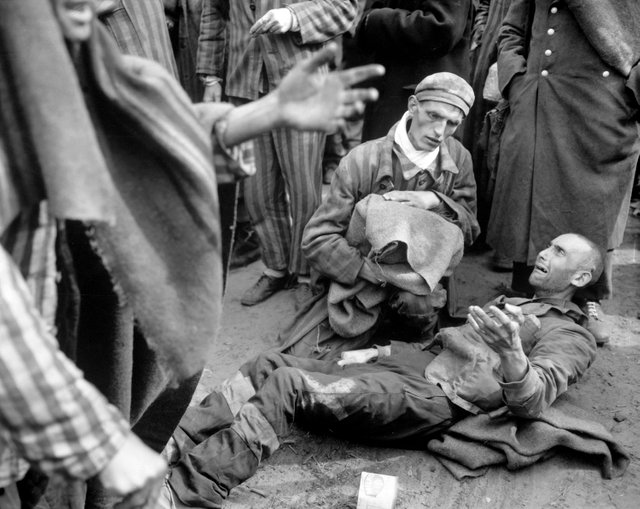
When Frankl was first placed into the camp, he was just one of the many indistinguishable faces in the crowd who was assigned a number in place of their name, and a role. He was delegated one of the many tasks that were the epitome of what dehumanizes a person and strips them of their identity. If it wasn't cleaning up the bodies of the people whom suffered the bite of the gas chambers, it was perhaps scrubbing of the walls of blood from people attempting to kill themselves. Sometimes, it would be to mop the floors from excessive waste from when prisoners would defecate themselves. If the jobs weren't so horrendous, perhaps nobody would have been part of the lucky 10%, but the dirty work still needed to be done. The Germans knew it would be more beneficial to keep a few of the prisoners around and clean up the mess, than killing them all and having to deal with it themselves. They were also careful enough, to only take a handful out of each mountain's worth of people, to ensure there could never be a revolt. Whether or not those few selected were really lucky is open for interpretation. If you arrived to Auschwitz on a train, your options were going to be grim either way.
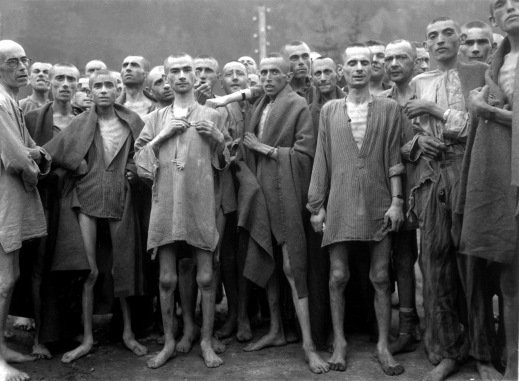
Unlike the other few that were pointed towards the right, Frankl had a plan to survive. Although he, like most of the prisoners, experienced within himself the urge to end it all, he found that by focusing on his wife, he could find the strength to press forward. Although she could have been living or dead from his knowledge, somehow, it still gave him comfort to keep her in his mind nonetheless. He noticed a similar feeling spark within some of the other prisoners while traveling between camps on the train where they would gather around to enjoy the mountains, or how they would all stare in awe at a sunset. Prayer was also one of the rituals that seemed to bring life back into these destroyed souls as they would congregate together in harmony. Viktor had learned in instances such as these, that man could suffer a great deal so long as he had meaning in his life. If, however, a person would have nothing to live for anymore, something fascinating would happen to them.
Frankl had noticed that under the extreme conditions of the camp, sometimes, prisoners would start to express unusual behaviors that wasn’t found in regular society. He noticed that people would begin to walk around in a zombie-like state and become completely complacent about their environment. They no longer showed any indication of hunger and appeared to be unaffected by everything going on around them, even if it caused physical pain. These individuals usually died in about 2 weeks if not before, of starvation and illness, or from failing to take care of themselves. It’s no surprise why. With so many poor conditions and negative practices within the camps such as striping an individual of their belongings, hair, and identity, and granting very few bathroom privileges which cause the prisoners to soil themselves, they regressed into child-like behaviors. They would shed off a layer of their very being and become mere husks of who they were; void of any human characteristics. Their eyes become dead and they began walking around arbitrarily, not taking note of where they were or what was happening to them; they were entirely apathetic. This kind of person was referred to by the other prisoners as "muselmann." Everyone knew once a person reached this state, their days were numbered. Once they degenerate to this point, they would be robbed of their shoes and clothing and then left to die as the animals they had become.
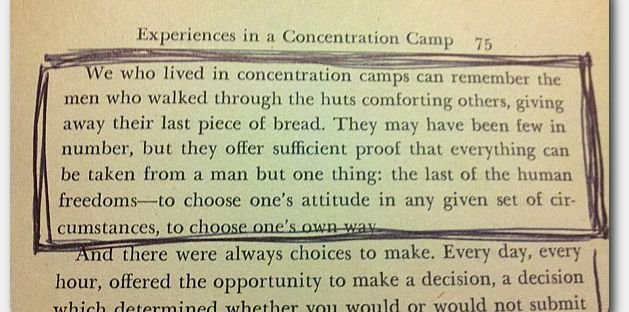
For three arduous years, Frankl lived in these crude conditions, watching as more and more people lost their soul to the effects of the Holocaust. During that time, he slowly became an inspiration to other prisoners, and eventually, even to the guards. He counseled other inmates through their depression and eventually was noticed for his skills in psychology, which allowed him special privileges. Since Frankl had a desirable talent, instead of cleaning up dead bodies, his time became more valued for counseling the suicidal. He was, in a sense, unofficially promoted to become the camp's Jewish specialist, which allowed him to, once again, act as a psychiatrist, but only to Jews. He was given more food to keep his own mind strong and was treated with more respect by the guards than the other prisoners. Most importantly though, he was given the opportunity to observe everything that was going on, which allowed him to further his research and make an interesting discovery which he would later publish in his book "Man's Search for Meaning."
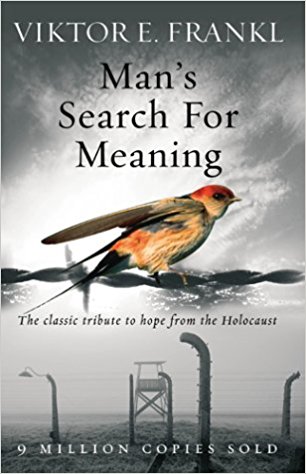
The way Frankl viewed himself was uplifting because he didn't see his situation as being life punishing him, but life demanding more out of him. Instead of being upset with his circumstance and letting that degrade his character, he instead became a better person and reversed his situation. He learned that even when he was behind bars and had less liberties, he had more internal freedom than did the other prisoners and even the guards. His body may have been bound, but his mind and spirit remained free. He had the ability to understand that what was happening was not determinative of how he had to react, but was only one element of the matter. How he conducted himself, would be his choice and he chose to find meaning in even the worst of situations. When he entered the camp, he came in as a broken man who had life taken away from him. For this, he was given cell walls and was treated as an inferior person. Once he realized that although his body was bound, his mind was free, the scope of his reality expanded as well as his enclosure. As he grew and developed spiritually, he eventually arrived at a point where he outgrew his cell and became more free than his capturers. They may have been able to take his liberties away, but they could never take his freedom unless he let them and that's one thing he wasn't willing to give up.
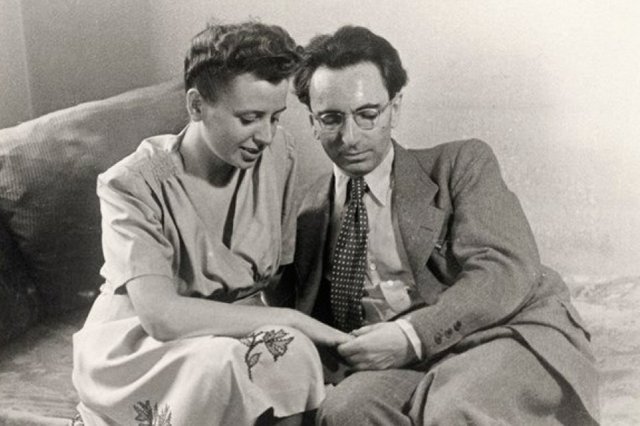
One day when Frankl was talking amongst two other prisoners on a train with him, he asked them why they were interested in killing themselves. They told him that they had nothing more to expect from life. Frankel's response was what would become the entire basis behind his discovery: "Instead of saying that you have nothing to expect from life, is it considerable that maybe life expects something from you?" Frankl’s work would suggest that life had something in store for each individual, but that it was up to them to find and fulfill it. He explains in one of his most famous quotes, that "Between stimulus and response, there is a space. In that space is our power to choose our response. In our response lies our growth and our freedom." Essentially, what he was suggesting was that how we react to stress defines us as human beings. Viktor Frankl's work was monumental and created the third class of psychology, which inferred that man's entire purpose was to have meaning in his life.
Frankl's work suggests that we cannot only endure, but overcome the worst kinds of suffering, provided that we have some kind of meaning in our life to pull us through to the end. If, however, we lack any form of purpose, we will die; first from the inside, then on the outside. Are we going to be defined by our shortcomings, or by our potentials? That is a question we should all ask ourselves, because every thought carries within it, our future, which is visible to us, only through our actions in the present. If we become fixated on our flaws and problems, we’ll be rewarded with limiting boundaries such as Frankl did when he first arrived at the camp. When however, we can find meaning in our actions and have a desire to fulfill a greater purpose, we become free. Our future does not have to be a direct reflection of our present. Where we are now is only what we make of it. If you treat it as a destination, you have nowhere to travel to because you are already there. When you treat it like a step, you know that it’s only one transition out of many that you will travel through to excellence.
Remember, dreams are what pull us through the threshold of where we stand, to what we are capable of enduring and accomplishing. Without them, man is pulled backwards into time through what he knows and regresses to his child-like behavior. As long as we are willing, we will find that there is always something more to pull towards. Man exists with infinite potential and one's excellence will achieve no end, provided that their burning desire is still alive.
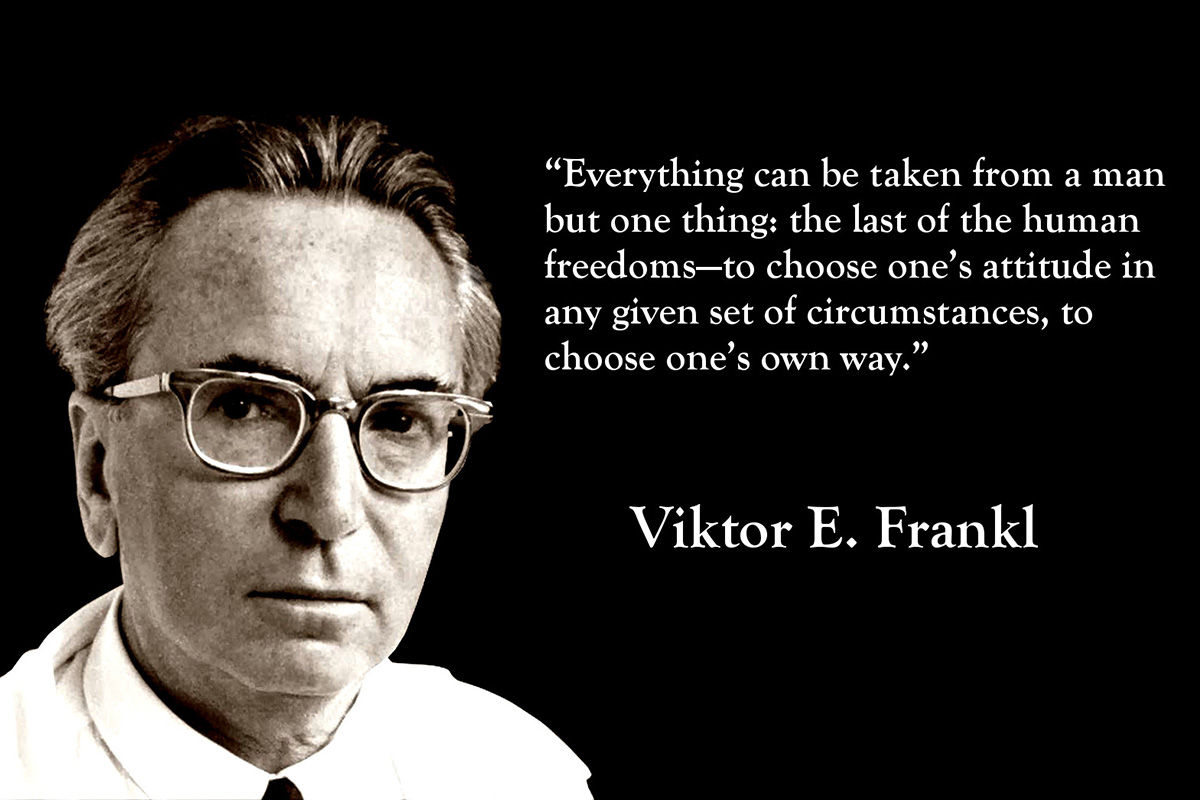
Thanks for reading, and take care!
Who Is @Thegreatlife ?

Hello, my name is Adam Rounisto and I am a music composer, author, and educator. My goal is ultimately is to teach things as I understand them, or at very least, entertain if I don't know what the hell I'm talking about. I don't mind if my stuff isn't perfect, because perfection prevents progress, so, I present to you even some of my rawest stuff in spite of being done or not.
If you enjoy what I'm doing feel free to check out my YouTube Channel HERE
If you are interested in checking out my music and projects that I'm involved with, click HERE
To check out my board game website, click HERE
I'm always looking for other highly motivated people to work with so if you would like to work on a project with me, feel free to reach out to me here on Steemit or through YouTube.
This is an incredible story of hope and strength.
You did this man justice by conveying his story choosing your words perfectly.
It's not everyday I get captivated from start to finish by such a long post but today you did just that.
This has to be one of the best posts on Steemit.
Fantastic work.
That means a lot to me. I felt that he had a great story that should not be forgotten.
A man of unbelievable strength.
You got a 1.04% upvote from @postpromoter courtesy of @thegreatlife!
Want to promote your posts too? Check out the Steem Bot Tracker website for more info. If you would like to support the development of @postpromoter and the bot tracker please vote for @yabapmatt for witness!